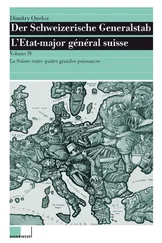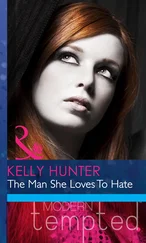A roar overhead caused her to stumble then look to the sky. In the dust-filled air in which birds and even the sun seemed extinct, she saw three planes. Fighter jets. Trailed by plumes of thick black smoke, flags of red, white, and blue stars and stripes plastered on their sides. Flying low, fast, and purposefully, they cleared away the clouds each time they passed. Their sleek bulks emerged. They were magnificent. A second pass. Then a third. Natasha couldn’t tell if each trio of planes was the same set or a new one. Suddenly, men clinging to giant white balloons emerged from the jets’ trails. Parachutists. Slow like snowflakes, they fell to the ground. No hurry. It was as if they wanted to take in the view from up there. As if they wanted Natasha and the wounded Haitians all around her to bow in awe of them.
Natasha stared at the parachutists with tears streaming down her cheeks. She tried to imagine what Port-au-Prince after an earthquake looked like from their perspective high up in the heavens. Her heart sank with a mixture of terror and embarrassment. Was the city up in flames? Had it sunk into the ocean? Was everyone dead? Was she? If she was dead, what kind of hell was this? How would she know if she was dead or alive? Were those men or angels? Or demons? What was she? How would she know? How would they know? Suppose they didn’t know? Suppose they didn’t know, then what, man, what? Suppose these men didn’t know they were drifting down into hell? Her hell. Foolish, foolish foreigners.
Go away! she found herself screaming while waving at them. Go away! Go away! she kept screaming. The sky was raining men in balloons. Men in little white balloons that got bigger and bigger as they drifted closer and closer to the ground.
Go away! Go!
Strong arms soon wrapped themselves around Natasha’s waist from behind. A husky voice gently, ever so gently, whispered her name. Natasha, the voice said. Natasha, ça va .
Natasha would have none of it. Not even bothering to turn around, she continued to howl at the parachutists.
Go away!
Ça va , the voice said. It’s OK.
Go away!
Natasha, it’s OK.
Go away!
Shhhhh, chérie, Calme-toi .
Go!
Ça va. Ça va . I’m here.
With wild eyes, Natasha turned around to see the face of the man who was rescuing her. It was the president of Haiti, her husband. His clothes were wrinkled and ashy with dust. Yet he looked good… not good, but almost. He looked younger than his sixty years, young and fresh. His arms were unusually strong. He held her. He held her. He held her like he never did before. In the past, when he’d try to hold her, she used to wince. In the palace, in his bedroom, anywhere. The few times they’d touched, he was rough or scared. A bundle of nerves. He might have been a virgin before they made love. If she didn’t want to protect his pride, she would have asked him. Protecting his pride. That’s what she felt her role in his life was to do. She thought that’s why God had brought her into his life. So she could care for a man in need, an old man triple her age who had outgrown the pretense of invincibility men Natasha’s age cling to. Natasha could care for someone instead of waiting for a prince charming to take care of her. Lord knew she benefited from the distraction.
Back then, sculpting crucifixes made of trash and assorted debris along Avenue Lamartinière was all that kept her busy. She sculpted morning, noon, and night. It was an obsession. They were pretty and funky, the crucifixes. She liked them and occasionally carved smiles and frowns and, controversially, glee in the dying Jesuses’ faces. She sculpted Christ on his cross in different sizes, colors, and materials, and she put them up against walls with the help of strangers and kids. At some locations, folks were inspired to light candles on the ground near her crucifixes. She’d hang back and enjoy the serenity of the scene. Fireflies would come around to dance with the flames. Sometimes people took the crucifixes down overnight. Often they stayed up for days, even weeks. Whenever they disappeared, Natasha hoped they ended up in places of pride, in a family’s shack or a villa in the hills. That’s how she came to meet the President.
How much do you want for that one? a voice said to her one night. She was standing on the street admiring a particularly cheerful rusty expiring Jesus. This Christ was particularly heavy. The two boys who had been assisting her, Toto and Rodrigue, were exhausted. It was late; the black night’s chill drew close. The voice belonged to a dapper little old man leaning against a black Mercedes flanked by four armed men dressed in black and two smaller Asian soldiers wearing blue helmets that were a size too big.
It’s not for sale, she said.
Is that a political decision? the old man said. Because there were five of them being sold in front of my house this week.
Really? she said. That’s not supposed to happen. They’re not for sale. They are gifts to the community. Where do you live?
The National Palace, he said.
Natasha took a step back.
She proved to be a lousy girlfriend and wife, but she tried hard to protect his feelings as best she could. His work was difficult and he was terrible at it. He let her sit in on meetings in his office at the National Palace. And what she saw and heard was not pretty. Just a couple of weeks ago, on January 1, Haitian Independence Day, he had to postpone attending his nation’s birthday celebration at the National Cathedral because of a last-minute summons from someone called the special envoy. The special envoy worked on a military base. It was near the national airport, on the road to Tabarre. She never saw such a base before. The entrance was six meters from the street. African and Asian and Latino soldiers wearing blue helmets stood guard in front of the entrance. The base’s walls were painted off-white and sky blue. The walls were tall and topped with brand-new and thick barbwire that sparkled in the sun. The creamy blue wall with its crown of metal thorns stretched as far up the street as Natasha could see. Across the street, young men and women stood by booths, selling trinkets and artifacts of the folksy kind aimed at tourists. White Range Rovers, military buses, and trucks with the letters “U” and “N” painted black on their doors streamed in and out of the base. The base looked like a world unto its own, Natasha thought. How could such a military base with its posh and mysterious ecology hide in plain sight in the middle of Port-au-Prince?
The President had to show ID to get in. Twice. After the car glided through the hive of military activity, they reached a leafy street. The man they had come to see greeted the President and the first lady near a garden outside his office. He had silver hair, a pointy nose, and white hairy eyebrows reminiscent of Santa Claus, and he wore a tie, a tan suit, and brown shoes. He spoke Spanish to a well-dressed and fresh-faced assistant on his right. He spoke perfect Haitian Creole to the well-dressed and fresh-faced assistant on his left. To the President, he spoke the most chaleureuse and mellifluent French. The man was short, shorter than the President; his enthusiastic handshake almost made the President lose his balance. After the President introduced Natasha to him, the silver-haired man known as the special envoy bowed courteously. Then he told Natasha to wait outside. The President said nothing. He hadn’t said anything since the small humiliations began piling up that morning. He seemed to have nothing to say now. He couldn’t even look Natasha in the eyes, so Natasha spoke up.
It’s OK, honey, she said. I need some coffee anyway. I think I saw a cafeteria around the corner.
Читать дальше












